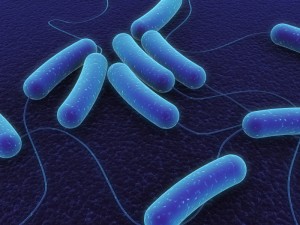 Hemolytic Uremic Syndrome (HUS) is a life-threatening complication of E. coli infections that primarily affects young children. HUS causes kidney failure, seizure, stroke, coma and death. Because March is Kidney Month, it’s a good time to learn the risks and symptoms of HUS.
Hemolytic Uremic Syndrome (HUS) is a life-threatening complication of E. coli infections that primarily affects young children. HUS causes kidney failure, seizure, stroke, coma and death. Because March is Kidney Month, it’s a good time to learn the risks and symptoms of HUS.
With about 7,500 cases reported n the United States each year, HUS from E. coli infections is the most common cause of serious kidney injury in children and the most common cause of E. coli deaths. And most E. coli infections in children are caused by contaminated food or drinks.
E. coli outbreaks have been linked to hamburger, mechanically tenderized steak, lettuce, spinach, sprouts, raw milk, raw cheese, unpasteurized apple cider, strawberries, hazelnuts, frozen pizza and other frozen food products, cookie dough and pizza dough.
Symptoms of an E. coli infection usually develop within a week of eating contaminated food and include severe and very painful abdominal cramps and diarrhea that can be watery or bloody.
If your child is experiencing these symptoms, see a doctor. It’s important to note that the Centers for Disease Control and Prevention (CDC) recommends that antibiotics should not be prescribed for E. coli infections, as they put patients at greater risk of developing HUS.
HUS causes damage and destruction of red blood cells. The damaged red blood cells clog the filtering system in the kidneys which may cause kidney failure. It can also cause seizure, stroke and coma.
Symptoms of HUS appear after E. coli symptoms. These symptoms include pale skin, lethargy, little or no urine output, easy bruising, bleeding from the nose and mouth, and a skin rash. Anyone experiencing these symptoms should see a doctor immediately because this is a very serious condition.
Most children with HUS recover with time and medical intervention. But about 30 percent of them will experience long-term health effects including chronic kidney disease, hypertension (high blood pressure), and chronic neurologic damage. Some may, in fact, require dialysis and a kidney transplant in later years.




